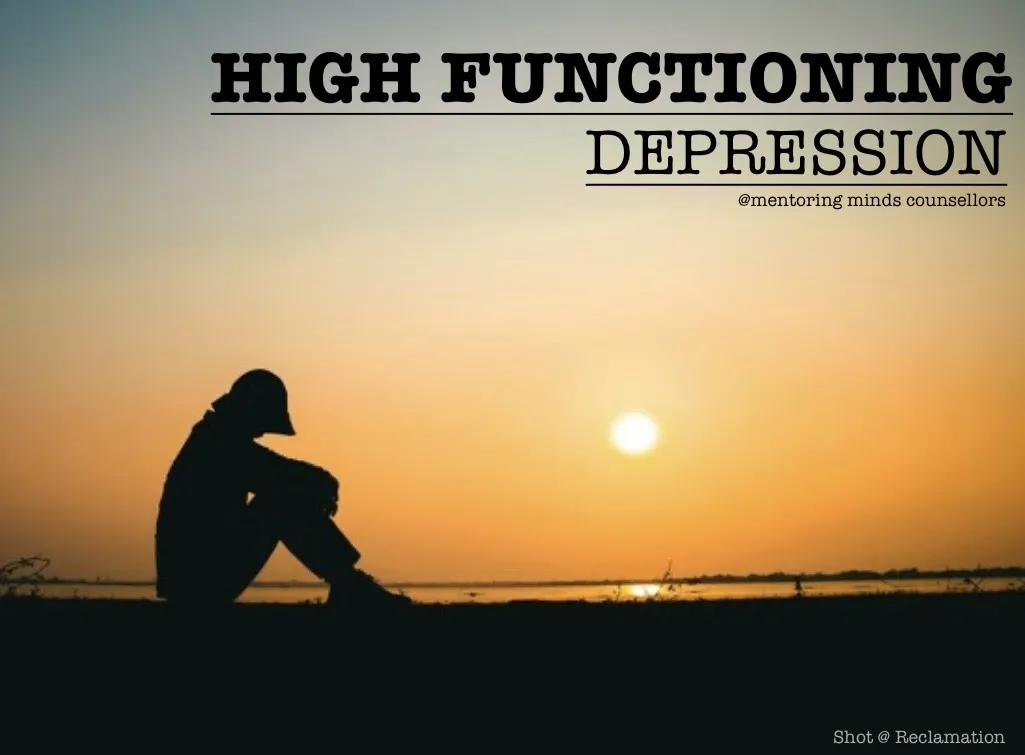High-functioning depression is a form of depression where someone feels persistently sad or hopeless, but still manages to go about their daily life. They might continue to go to work, attend social events, and appear outwardly “fine,” but internally, they’re struggling. The difference between high-functioning depression and more traditional forms of depression is that the symptoms may not be as visible.
While many may see a person with high functioning depression as “successful” or “fine,” what’s happening beneath the surface can be incredibly taxing. The emotional weight of sadness, numbness, or emptiness can drain a person’s energy, even though they manage to show up for their responsibilities.
What can be the Hidden Symptoms?
One of the biggest challenges of high-functioning depression is that it can be hard to recognize. Some of the symptoms are subtle and can often be dismissed as just stress or fatigue.
- Persistent low mood: Unlike the occasional sad day, high-functioning depression is characterized by a constant feeling of sadness or emptiness. It’s not necessarily about being in tears every day, but a persistent sense of not feeling like yourself.
- Fatigue and lack of motivation: Despite going through the motions of life, someone with high-functioning depression may feel emotionally drained or unmotivated to do things they once enjoyed. Everyday tasks can feel overwhelming.
- Continuous overachievement thinking: People with high-functioning depression often hold themselves to incredibly high standards. They may overcompensate by pushing themselves to achieve more at work or in their personal life to mask their inner struggles.
- Irritability and mood swings: The emotional weight can lead to increased irritability or feeling overwhelmed by situations that wouldn’t normally be so triggering. They might snap or withdraw without much provocation.
- Difficulty with sleep and eating: Changes in sleep patterns, whether it’s sleeping too much or struggling to fall asleep, are common in high-functioning depression. Similarly, eating habits may fluctuate either eating too much or not enough out of emotional exhaustion.
How can it create an Impact on Life?
While people with high functioning depression might still show up for work, friends, and family, the toll it takes on their mental and physical well-being can be profound. Long-term, this kind of depression can lead to burnout, anxiety, and even more severe forms of depression.
Relationships can also suffer because the person may appear distant or less emotionally available. The act of pretending everything is okay, while wearing an emotional mask, can create a sense of isolation.
Additionally, this constant effort to maintain a facade of normalcy can make it difficult for others to offer support. Those around someone with high-functioning depression may not realize that they need help, because the individual appears to be managing just fine.
How to Break the Silence?
A key issue with high-functioning depression is that it often goes unnoticed. People with this condition may feel ashamed to admit that they’re struggling, because they’re still able to meet societal expectations. They may fear being judged or perceived as weak for not “being able to handle it.”
But it’s important to recognize that struggling doesn’t always look like the stereotypical image of depression. It’s okay to not be okay, even if you can still go to work, manage relationships, and carry out everyday tasks. Reaching out for help is an important step.
Conclusion
We at Mentoring Minds Counsellors understand that High-functioning depression is a silent, hidden struggle. It’s easy to dismiss because the outward appearance may not reflect the internal battle. But it’s important to remember that depression, no matter how it manifests, is valid and deserves attention.


Leave a Comment